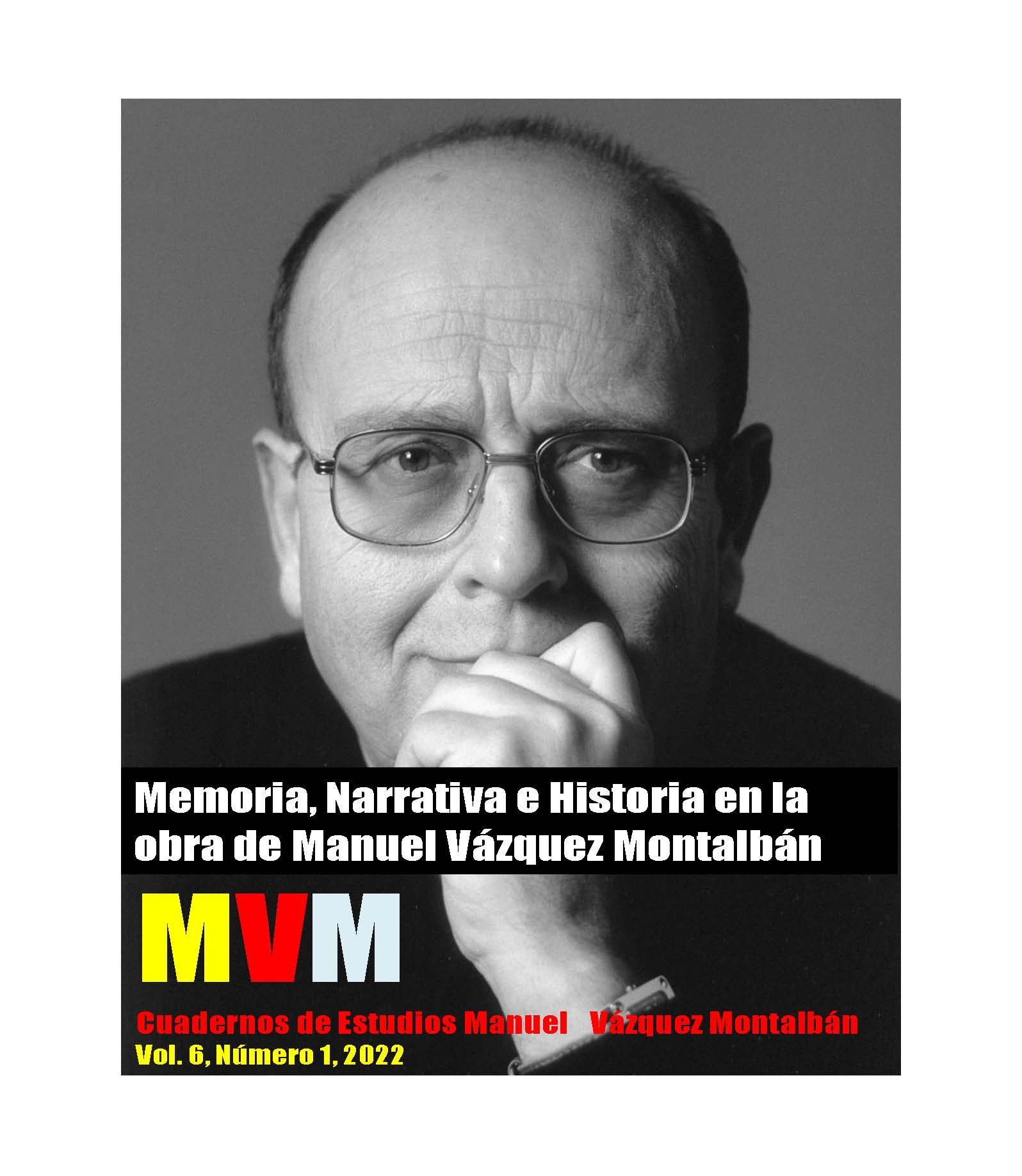Carvalho Under Construction: Yo maté a Kennedy
DOI:
https://doi.org/10.5617/mvmcemvm.9431Keywords:
Manuel Vázquez Montalbán, experimental novel, noir novel, Carvalho’s series, the assassination of JFK, genre, patriarchy, machismoAbstract
Yo maté a Kennedy (1972) has been mostly read as a harsh critique of post-world war II American capitalism and as well as an experimental novel that exemplifies the neo-avant-garde movement of its time. In this article, I defend a reading of the text based on the application of R. Williams’ concept ‘structures of feeling’ on artistic social recreations. I propose that beyond challenging the American status quo of the sixties, Vázquez Montalbán explores how this particular form of capitalism impacts his main character, Pepe Carvalho, and also himself as a communist author. In the narration, the writer recreates an ironical game between Carvalho, the author and many intellectuals of the time wherein the invasion and acceptation of capitalism is unstoppable. In a manipulated control of internal and external tensions, the narration builds a novel that shows the importance of a specific approach to Otherness in American patriarchy capitalism as a key piece of the specific structure of feeling that guides the novel’s characters development and its influence in the western world. In this sense, the changes based on the implementation of this structure will impact the rest of the Carvalho saga.
References
Cate-Arries, Francie. “Manuel Vázquez Montalbán: Pop culture, Mass Media, and the Poetic Creation” Confluencia Vol. 2, No. 1 (Fall 1986): 21-27. Impreso.
Colmeiro, José F. “La narrativa policíaca posmodernista de Manuel Vázquez Montalbán” Anales de la literatura española contemporánea Vol. 14, No. 1/3 (1989): 11-32. Impreso.
Colmeiro, José. “De Pepe Carvalho al subcomandante Marcos: La novela poli-cíaca hispánica y la globalización” Revista Iberoamericana Vol. LXXVI, No. 231, (Abril-Junio 2010): 477-492. Impreso.
Fernández, Álvaro. “Manuel Vázquez Montalbán” Olivar Año 5, No. 5, (2004): 105-109. Impreso.
Izquierdo, José María. “Construcción de la conciencia crítica e hibridación: Dos constantes en la obra de Manuel Vázquez
Montalbán” Cuadernos de Estudios Manuel Vázquez Móntalbán Vol. 1, (2013): 3-18. Impreso.
Moret, Xavier. “Entrevista a Manuel Vázquez Montalbán.” El País Web. 19 Febrero 1997.
Moya Bedoya, Juan Diego. “Acerca de Yo maté a Kennedy, de Manuel Vázquez Montalbán” Káñina, Revista de Artes y Letras Vol. XXXII, No. 2 (2008): 25-32. Impreso.
O’Donnell, Kevin. “Lost in the Supermarxist: The Appeal of Pepe Carvalho” Arizona Journal of Hispanic Cultural Studies Vol. 9 (2005): 137-147. Impreso.
Sanz Villanueva, Santos. “Carvalho, pequeñoburgués.” El Mundo Web. 19 Abril 2000.
Vázquez Montalbán, Manuel. Yo maté a Kennedy. Barcelona: Planeta, 1989. Impreso.
Wells, Caragh. “Nostalgia and Sentimentality in Manual Vázquez Montalbán’s ‘Serie Carvalho’” Hispanic Review Vol. 76, No. 3 (Summer 2008): 281-297. Impreso.
Williams, Raymond. Marxim and Literature. Oxford: Oxford University Press, 1977. Impreso.
Downloads
Published
Versions
- 2022-01-15 (4)
- 2022-01-15 (3)
Issue
Section
License
Los autores/as que publiquen en esta revista aceptan las siguientes condiciones:- Los autores/as conservan los derechos de autor y ceden a la revista el derecho de la primera publicación, con el trabajo registrado con la licencia de atribución de Creative Commons, que permite a terceros utilizar lo publicado siempre que mencionen la autoría del trabajo y a la primera publicación en esta revista.
- Los autores/as pueden realizar otros acuerdos contractuales independientes y adicionales para la distribución no exclusiva de la versión del artículo publicado en esta revista (p. ej., incluirlo en un repositorio institucional o publicarlo en un libro) siempre que indiquen claramente que el trabajo se publicó por primera vez en esta revista.
- Se permite y recomienda a los autores/as a publicar su trabajo en Internet (por ejemplo en páginas institucionales o personales) antes y durante el proceso de revisión y publicación, ya que puede conducir a intercambios productivos y a una mayor y más rápida difusión del trabajo publicado (vea The Effect of Open Access).



